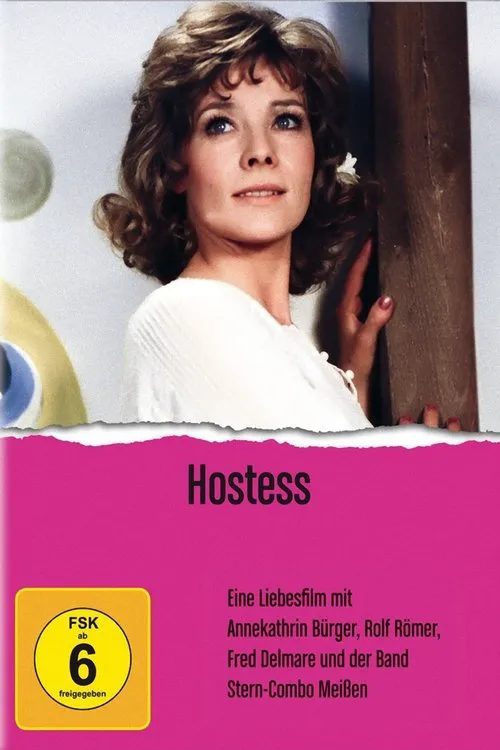Hostess

Plot
Hostess is a 1980 Danish drama film written and directed by Leif Panduro. The film explores the complexities of relationships, societal expectations, and personal freedom. At the center of the story are Jette and Johannes, a couple who have lived together for nearly two years. The movie begins with Johannes suggesting that they formalize their relationship by getting married. However, Jette is taken aback by the proposal. Despite her affection for Johannes, the thought of marriage fills her with apprehension and anxiety. Her hesitation sets off a chain reaction of events that reveal the intricacies of their relationship and the societal pressures that they face. Jette's reluctance to marry stems from a mix of emotional and intellectual reasons. On one hand, she values her independence and autonomy, which she has been able to maintain by living with Johannes but not marrying him. Marriage would require her to surrender some of her personal freedom and assume more responsibilities within the relationship. On the other hand, Jette is also uncertain about her feelings for Johannes, which may not be as deeply romantic as his for her. As the story unfolds, Johannes presses Jette to explain her reservations about marriage. He presents his side of the argument, pointing to the benefits of marriage, such as social recognition, financial stability, and emotional support. However, Jette's concerns only deepen, and she begins to question her own desire for marriage. Meanwhile, Jette's mother, who has always dreamed of having a daughter-in-law, is overjoyed by the prospect of Jette's marriage. Her mother's enthusiasm only adds to Jette's anxiety, making her feel trapped and pressured into making a decision that she's not ready for. This external pressure forces Jette to confront the expectations of those around her and her own desires. Throughout the film, Jette grapples with the moral and emotional implications of her decision. She is torn between her love for Johannes, her loyalty to her partner, and her need for personal freedom. As the story reaches its climax, Jette is faced with a difficult choice: sacrifice her independence for the sake of her relationship or risk losing the love and companionship that she has with Johannes. Ultimately, Hostess is a nuanced exploration of the complexities of love, relationships, and societal expectations. The film challenges conventional notions of romance and commitment, raising questions about the importance of personal freedom and autonomy in relationships. While Johannes' character represents a more traditional view of marriage and relationships, Jette's character embodies a more modern and liberated perspective. The movie's slow-burning narrative and introspective atmosphere allow for a deep dive into the characters' emotional states. The cinematography and direction by Leif Panduro create a warm and intimate atmosphere, drawing the viewer into the world of Jette and Johannes. The performances of the lead actors, Susse Wold and Ole Fyrberg, bring depth and nuance to their characters, making their struggles and desires feel relatable and authentic. Hostess is a thought-provoking film that encourages viewers to reflect on their own values and priorities in relationships. While it may not offer a definitive answer to the question of whether marriage is necessary or beneficial, it provides a nuanced exploration of the complexities involved in making decisions about love, commitment, and personal freedom.
Reviews
Recommendations


